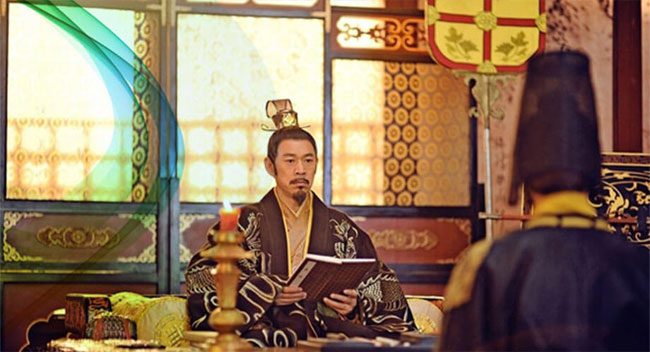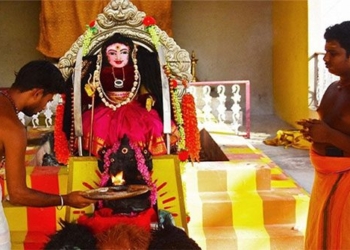In ancient times, the death of an emperor was referred to as “băng,” a term that not only demonstrated respect for the supreme status of the Son of Heaven but also reflected the rituals and taboos of the past.
Ancient sayings state: “Aside from life and death, there are no major matters.” “Birth, aging, sickness, and death” have always been important concerns for people. This is because they are the natural laws of life. However, “death” is always approached with more caution and taboo compared to “life,” which is why there are many alternative terms to describe it.
In the past, when an emperor passed away, it was not acceptable to say “died,” but rather to use more euphemistic expressions such as: “băng,” “tân thiên,” “băng tồ,” “đại hành”… to replace it. Even common people would use terms like: “tạ thế,” “lâm chung”… to avoid the word “death.”

Ancient emperors were often regarded as “sons of heaven”. (Image: Kknews.cc).
In the book “Wen Yuan. Zhuge Liang. Departure Memorial”, it is written: “The former emperor’s achievements were not yet complete, and he passed away midway,” meaning “The former emperor established his career but died before it was finished.”
In “The Book of Rites. Qu Li Xia”, it states: “When the Son of Heaven dies, it is called băng; when the feudal lords die, it is called hoăng; when high officials die, it is called tốt; when common people die, it is called bất lộc; and when the lower class dies, it is called tử.”
This alternative terminology is not only a matter of taboo but also reflects the etiquette and hierarchy of ancient times. In ancient society, great importance was placed on rituals and social status, so the term “death” was not universally applied to everyone. Individuals of different statuses would have different terms for their passing.
For a period, the death of an emperor was referred to as “giá băng.” In ancient times, “giá” referred to the royal carriage of the emperor. “Xa giá,” “loan giá” were terms used to refer to the king’s carriage.
In the book “Han Shu. Yu Fu Shang”, it states: “The chariots of the Son of Heaven when traveling are divided into: da giá, pháp giá, tiểu giá. Among them, da giá is used in the most grand ceremonies, larger than both pháp giá and tiểu giá.” Zhang Ziliang of the Ming dynasty wrote in “Zheng Zi Tong”: “During the Tang dynasty, the place where the Son of Heaven resides is called the nha, and when he travels, it is called giá.”
After some time, the word “giá” became an honorific title for the emperor. Terms like “hộ giá,” “thánh giá,” “giá tọa” all refer to matters related to the emperor.
“Shuo Wen Jie Zi” states: “Băng, shan phôi dã,” thus the original meaning of “băng” is a mountain collapsing. In the book “Spring and Autumn Annals”, it also annotates the character “băng” as “Liang Mountain băng,” meaning the collapse of Liang Mountain.
Ancient people regarded the death of the emperor as an extremely significant event, akin to mountains collapsing and the earth shaking. This is because it affects the fate of the entire nation and the populace. Therefore, ancient people often used the imagery of collapsing mountains to compare to the emperor’s passing. Since the beginning of the Zhou dynasty, the term “giá băng” has been used to describe this event.
Modern individuals do not uphold the same rituals and etiquette as their ancestors; in daily life, they casually use the word “die” in anger, scolding others: “Die already!”, “Just die!”… Some even fail to value their own lives, thinking: “Better to die than face this.”
Buddhism teaches: “Human life is hard to obtain,” meaning that in the cycle of six realms, a human body is very difficult to attain, and once lost, it is hard to gain the opportunity for cultivation, as Buddhism believes that the purpose of life is not merely to exist but to cultivate and attain liberation. Therefore, life is precious, and losing the human form is seen as a misfortune that ancient people avoided mentioning.




















































